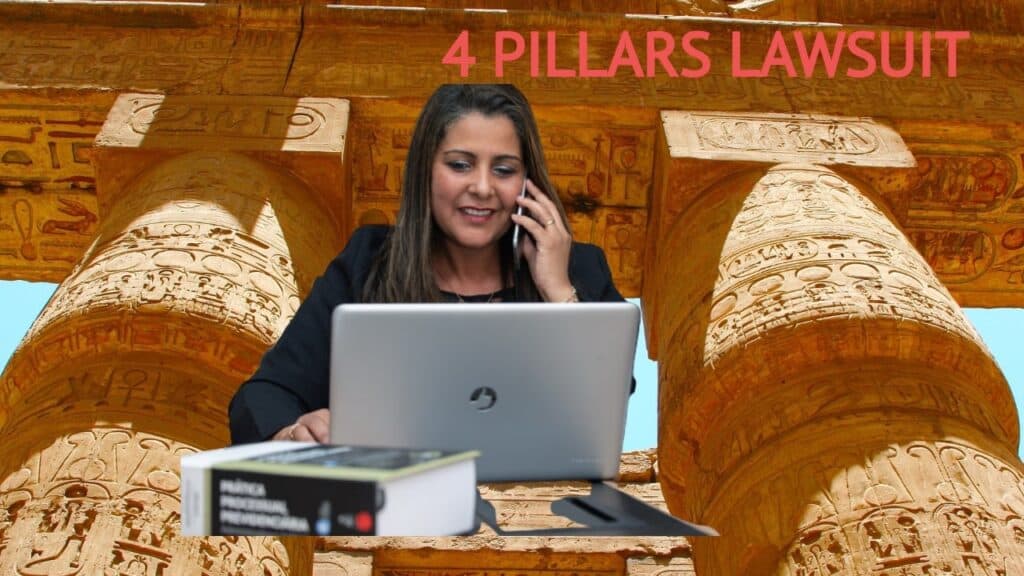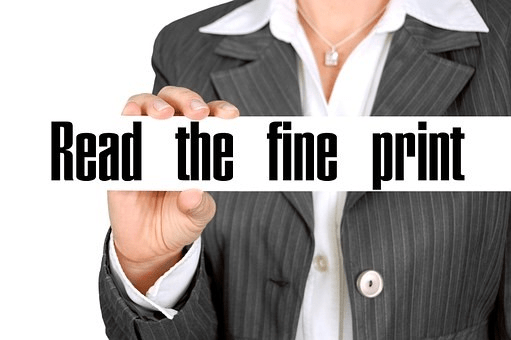As the COVID-19 pandemic continues, we hope that you, your family, and your friends are safe, healthy, and secure. Ira Smith Trustee & Receiver Inc. is fully operational, and both Ira and Brandon Smith are readily available for phone or video consultations.
Canadian debt relief program: Before you sign up for debt settlement
A Canadian debt relief program: it may seem like a good idea. Missed payments on your credit cards, loans or other unsecured debt, can lead to collection calls and worsen your situation. Choosing a debt relief program is often the last resort for Canadians to escape the grip of their creditors.
As a solution to consumer debt problems, debt relief companies offer debt settlement programs and debt relief programs. As a debt consultant, you do not need any special education or licensing to operate. Often, their actions are detrimental rather than beneficial.
This Brandon Blog is about a case I recently consulted about that is sad but true. This story is about a Toronto man who decided to use a Canadian debt relief program provided by a debt relief company to settle his debt issues. As a result of using that Canadian debt relief program, he is still unable to pay his bills, and is in a much worse financial situation now than he was before he visited the debt settlement company. To make matters worse, the debt relief consultant then got a licensed insolvency trustee to almost go along with his cockamamy scheme. Unfortunately, the Trustee woke up too late, after all the damage was done.
I will explain it all to you.
Canadian debt relief program: Research the company’s reputation
There should be a law that requires all debt relief services companies to be licensed to do debt relief work in Canada. So if they are not licensed they are not allowed to claim they are licensed. Since a debt relief company does not need to have a special license to provide a debt relief solution, it means there are few regulations set in place to control what they can do and what they can charge their customers. A debt relief program is a program set up to help people get out of debt. Debt relief programs always are not designed to help you pay off all your debt.
Debt relief programs run by debt relief services companies often aren’t designed to help you find a permanent solution to the behaviour that got you into your debt problems in the first place. The problem with a Canadian debt relief program put together by a debt settlement company is that it may very well cause the loss of your money or as is the case in the true story I am about to tell you, the loss of your home.

Canadian debt relief program: Are debt relief programs really worth it?
A for-profit debt settlement company charges fees, just like any other for-profit business. Before any of your money is used to settle your personal debts, you must pay most of their fees upfront. No fees are charged by the non-profit credit counsellor. Reputable credit counselling companies do not require you to pay upfront for any tangible services they offer to help you reduce your various types of debt.
You set up an account with the company, where you make monthly payments from available funds to generate the money necessary to pay their fee and then to make settlement offers. There is no guarantee that working with a private debt settlement company will work. Debt settlement companies cannot guarantee that creditors will agree to settle on the outstanding debts when they contact them.
Your creditors may not be able to reach an agreement with them, so you may have to file a consumer proposal or end up filing bankruptcy. For services that the bankruptcy trustee provides for free, debt settlement companies charge debtors upfront fees. While you are in a Canadian debt relief program offered by one of these companies, you do not have any protection from creditors.
Should debt management programs be pursued? A not-for-profit credit counselling agency can provide this service. The answer is NO if it is a for-profit debt relief company. However, the answer is YES if it is a formal consumer proposal with a licensed insolvency trustee.
Canadian debt relief program: When using a debt settlement company goes terribly wrong – a true story
When things go wrong, they go really wrong and fast. We were contacted by a lawyer representing an undischarged bankrupt. The facts as I understood them to be were:
- The debtor went to a debt settlement company to get financial advice and help in resolving his debt problems. The company claimed to specialize in helping Canadians deal with their debt problems through a successful Canadian debt relief program. They said they could get him out of his financial mess and save his house. They told him that they would take care of everything.
- He was the only owner of the marital home. A real estate agent gave an opinion letter that stated the home was only worth the total of the registered mortgages.
- The debtor lost his job and his wife was making the mortgage payments from her employment income. They advised the couple that the wife could get legal protection by taking the position that each of her mortgage and utility payments was a secured advance to the husband. There was no written agreement between them registered on title and she did not register a mortgage against the home. This advice was obviously very wrong.
- The debt settlement company could not create any plans for debt forgiveness acceptable to the creditors. It was mainly credit cards and the debtor needed a successful credit card debt relief plan.
- The debt settlement company marched the debtor to a licensed insolvency trustee. We could not determine from the documents provided to us if the Trustee did any verification work or merely filed the assignment in bankruptcy based on the work of the debt settlement company. The sworn statement of affairs had the same value for the home as in the real estate agent’s opinion letter. Net of mortgages, the sworn statement of affairs showed no equity in the matrimonial home.
- The same day that the Trustee’s section 170 report was prepared, the Trustee wrote a letter to the debtor. According to the Trustee’s letter, after 1.5 years of bankruptcy there is $200,000 equity in the home, the wife has no existing secured claim to the property and therefore, the Trustee opposes the discharge since the asset has not yet been realized. There were no references in the Trustee’s letter to any previous communications or correspondence with the debtor regarding his equity in the home. Therefore, I do not know if the letter was the first time the Trustee discussed with the bankrupt the need to realize the equity in the home.
- In the section 170 report, again, dated the same day as the letter, the Trustee opposed the bankrupt’s discharge due to the home equity issue.
- A list of licensed credit counsellors can be found on the website of the Superintendent of Bankruptcy. Upon searching that licensed credit counsellor database, we were unable to locate the name of the debt settlement company employee who assisted the debtor.
- The undischarged bankrupt’s wife, or any other family member of his, was not able to raise the necessary funds to purchase the Trustee’s interest in the equity of the home. The undischarged bankrupt has no means from which to attempt to do a consumer proposal or Part III Division I Proposal to do a successful proposal out of bankruptcy.
- The debt settlement company’s work directly led to the undischarged bankrupt losing his home as it would have to be sold either by the debtor or the Trustee.

canadian debt relief program
Canadian debt relief program: My advice
I did a Teranet search of the matrimonial home. The estimated value of the home according to Teranet showed there was more like $350,000 of equity, not $200,000. There was not a lot that this undischarged bankrupt could do. My advice was:
- The debt consultant apparently was doing work that a Trustee must do under the Bankruptcy and Insolvency Act (Canada) (BIA) but is not licensed to do that work. The debtor should consider demanding the fee paid to the debt consultant.
- Find out who did the mandatory two credit counselling sessions with the debtor; a licensed credit counsellor under the Trustee’s employ or the debt consultant?
- Find out if there is a financial arrangement between the debt consultant and the Trustee. Such arrangements are outlawed by the Superintendent of Bankruptcy.
- The debt consultant was very “cute” in trying to fix the value of the home so that there was no equity in the home. What verification work did the Trustee do when accepting the value in the sworn Statement of Affairs and beginning the bankruptcy process?
- Unfortunately, the undischarged bankrupt is stuck with this situation. The equity in the home belongs to the Trustee. There really was not anything that I could do to change that.
The lawyer thanked us very much and said that his discharge hearing will be quite the show after she examines the witnesses!
Canadian debt relief program: Options you can trust to help you with your debt
A licensed insolvency trustee would have been a better choice for this debtor rather than this debt relief company. Most people with consumer debt problems fall into one of three categories. Using these three categories, I will show what I would have advised this debtor. It is sufficient to say that the earlier you seek the services of a licensed insolvency trustee and avoid the debt consultants and their unrealistic promises, the more options you will have.
Your finances could be better, and you would like some help.
When you realize that you can do things better and wish to avoid trouble, you fall into this category. You can get proper financial advice from a licensed insolvency trustee at this stage. It is likely that if this debtor had approached me at the first sign of trouble, he could have avoided filing for bankruptcy. Things I might have discussed with him include:
- How to establish and follow a budget for the family.
- Does he have an adequate credit rating or credit score to be approved for and get a debt consolidation loan so that this loan would enable him to pay off all his unsecured debt in full and have one affordable monthly payment under a debt consolidation program.
- Having a non-profit credit counselling service assist him with budgeting, assistance with debt management and if required, arranging a debt relief settlement plan with his unsecured creditors. Creditors understand that sometimes life happens and there are situations where people require support for plans for debt forgiveness when it comes to ‘debt-causing’ scenarios such as critical illness, job loss and the death of a loved one.
- Making monthly payments to the non-profit credit counselling service so that they can make the necessary payments to creditors, as prescribed in the Canadian debt relief program they set up for him.
- His job includes referring the debt collectors to the non-profit credit counselling service when he receives their calls.
- His wife should seek independent legal advice about registering a mortgage against the family home as security for all advances she is about to make to her husband for the mortgage, property tax, utility bills, and any other funds related to the home’s maintenance.
- Is it possible to use the equity in the home to downsize?
- How filing a consumer proposal or an assignment in bankruptcy affects his finances and his life, including how it affects the equity in his home.
My advice would have cost him nothing, and he would be in a much better financial position than he is now. Most likely, he would have avoided the need for a consumer proposal or bankruptcy altogether.
Your finances are beginning to get out of control.
He and I would have discussed all of the above, along with independent legal advice for his wife, and the realistic option of having an affordable payment plan with debt reduction, by filing a consumer proposal as a real Canadian debt relief program for debt reduction and allowing him to make one affordable monthly payment on all his outstanding unsecured debts. Consumer proposals are the only Canadian debt relief program approved by and authorized by the Federal government.
You are in serious financial trouble.
If he hadn’t come to see me before he suffered severe financial difficulties, his only realistic option would be bankruptcy. From the very beginning, he would have realized that the equity in his home was at stake and would be lost to the Trustee. It wouldn’t have been a bad shock to the debtor after filing for bankruptcy. He may even have been able to locate a relative who could have purchased the equity in his home from the Trustee prior to filing so that his life would not have been negatively affected.

Canadian debt relief program: Summary
I hope you found this Canadian debt relief program Brandon Blog informative. Although nothing is guaranteed, managing your debt in a way that will allow you to be able to afford it, will lead to your financial success. It will also give you the best shot at having a financially stress-free life.
Are you or your company in financial distress and a debt crisis? Are you embroiled in costly litigation or a crushing debt load and need a time out in order to restructure? Do you not have adequate funds to pay your financial obligations as they come due? Are you worried about what will happen to you? Do you need to search out what your debt relief options and realistic debt relief solutions for your family debt are? Is your company in financial hot water?
Call the Ira Smith Team today. We have decades and generations of experience assisting people looking for life-changing debt solutions through a debt settlement plan and AVOID the bankruptcy process.
As licensed insolvency professionals, we are the only people accredited, acknowledged and supervised by the federal government to provide insolvency advice and to implement approaches to help you remain out of personal bankruptcy while eliminating your debts. A consumer proposal is a Government of Canada-approved debt settlement plan to do that. It is an alternative to bankruptcy. We will help you decide on what is best for you between a consumer proposal vs bankruptcy.
Call the Ira Smith Team today so you can eliminate the stress, anxiety, and pain from your life that your financial problems have caused. With the one-of-a-kind roadmap, we develop just for you, we will immediately return you right into a healthy and balanced problem-free life.
You can have a no-cost analysis so we can help you fix your troubles.
Call the Ira Smith Team today. This will allow you to go back to a new healthy and balanced life, Starting Over Starting Now.

As the COVID-19 pandemic continues, we hope that you, your family, and your friends are safe, healthy, and secure. Ira Smith Trustee & Receiver Inc. is fully operational, and both Ira and Brandon Smith are readily available for phone or video consultations.











